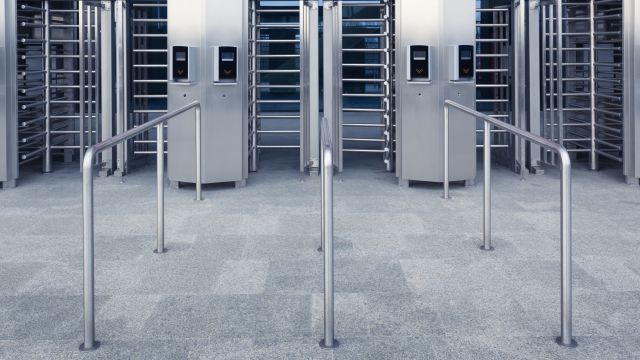
Physical protection
"Malicious acts" describes the theft or deliberate release of radioactive substances. "Third parties" refers to the respective perpetrators. The aim of all physical protection measures is to prevent such malicious acts or to minimise their effects.
Licence holders and applicants are obliged to protect facilities and transports against malicious acts through structural, technical, personnel and organisational measures in order to obtain a licence from the competent authority. The supervisory authorities of the Länder monitor the measures within the facilities. The licensing authority for transports is the Federal Office for the Safety of Nuclear Waste Management (BASE). Supervision is the responsibility of the competent local authorities.
Our tasks
GRS is the contact for the Federal Government and the Länder regarding the physical protection of radioactive substances and nuclear material from nuclear installations. We deal with the following tasks:
- assessment of security concepts for nuclear installations as well as for transports
- examination and evaluation of the functions of the individual physical protection measures on site
- maintenance, further development and evaluation of the knowledge base on the state of the art in science and technology
- contribution to the further development of safety regulations
- determination of radiological consequences in connection with terrorist impacts
- support of foreign authorities and the International Atomic Energy Agency (IAEA) in the further development of international regulations for the physical protection of nuclear fuels and other radioactive materials
- development of basic requirements for the physical protection of nuclear installations at home and abroad and the associated assessment methods (e.g. modernisation of the physical protection of some large nuclear installations abroad in the partnership programme of the G7 member states (G7GP))
- Supporting regulatory authorities in the assessment of security concepts for the handling or transport of other radioactive materials within the frame of the application of the guideline for the protection against malicious acts during handling and during the transport of other radioactive materials (SEWD guideline SisoraSt)